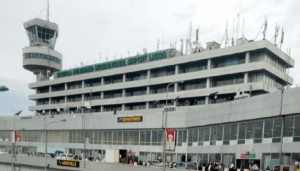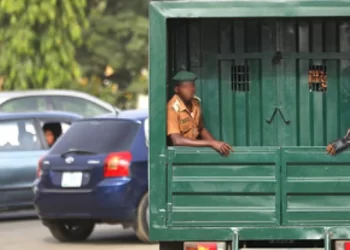The South East region of Nigeria, historically known as the stronghold of the Peoples Democratic Party, PDP, has witnessed a significant shift in political dynamics in the 10th assembly.
For over two decades since the advent of democracy in 1999, the PDP had maintained its dominance in the region.
However, recent developments have led to a decline in the party’s influence, with the emergence of the Labour Party as a formidable contender.
The first crack in the PDP’s hold on the South East came in 2003 when Peter Obi of the All Progressives Grand Alliance (APGA) was inaugurated as the governor of Anambra State.
Obi’s victory marked the first time a non-PDP member assumed the governorship in the region.
The subsequent rise of the Peoples Progressives Alliance (PPA), led by Orji Kalu, posed a significant challenge to the PDP’s dominance in the South East.
In 2011, Rochas Okorocha won the governorship seat in Imo State but later defected to the All Progressives Grand Congress (APGA). He later joined the All Progressives Congress, APC, during the merger. These developments marked a significant shift in the political landscape and set the stage for the PDP’s declining fortunes in the region.
The PDP’s brief return to power in Imo State was abruptly cut short when the Supreme Court controversially invalidated Emeka Ihedioha’s election as governor of Imo State in 2020.
Instead, the court declared Hope Uzodinma of the APC as the rightful winner of the governorship election in the state.
In a decision delivered by Justice Kudirat Kekere-Ekun, the seven-member panel concurred that the exclusion of results from 388 polling units during the collation of the final governorship election result in Imo State was unlawful.
While APGA maintained its grip on power in Anambra State with successive victories by Obi, Willie Obiano and Charles Soludo, the PDP faced setbacks in Imo, Abia, Enugu and Ebonyi.
The defection of Dave Umahi, the governor of Ebonyi State, from the PDP to the APC ahead of the 2023 general election dealt a severe blow to the PDP’s stronghold in the region.
This triggered a series of defections by influential PDP members to other parties, resulting in a decline in the party’s control over the region.
The 2023 election ultimately marked a significant setback for the PDP in the South East, as the party lost control of Abia State to the Labour Party.
The PDP managed to retain the governorship seat in Enugu but faced intense competition from the Labour Party, losing almost all the National Assembly positions. The APC continued its dominance in Imo State, while APGA secured victories in Anambra.
As it currently stands, the political landscape of the South East reflects a shifting balance of power. The Labour Party has emerged as a leading force, holding the reins in Abia State.
As the 10th Senate prepares for its inauguration, the Labour Party has emerged as the leading political force in the red chamber, shaking up the traditional power dynamics.
The party’s success can be seen in the distribution of seats across the South-Eastern states, with significant gains in key regions.
In Abia State, the Peoples Democratic Party (PDP) lost two seats it held in Abia South and Central, as Senator Enyinnaya Abaribe who moved to APGA defeated Dr Okezie Ikpeazu of the PDP. Labour Party secured one seat by winning the Abia Central, while Orji Uzor Kalu of the APC retained the seat of Abia North Senatorial Zone.
Imo State reflects a similar pattern, with the All Progressives Congress (APC) holding two seats and the Labour Party securing one seat in the upcoming Senate.
Anambra State, the homestate of the Labour Party presidential candidate in the last election, has witnessed a noteworthy political shift, with the LP securing two seats in the red chamber, while the Young Progressives Party (YPP) has secured one seat.
In Enugu State, the PDP currently holds one seat, while the Labour Party has successfully secured two seats.
The Labour Party’s leading position in the red chamber demonstrates its increasing influence and growing acceptance among voters in the South-Eastern states.
With victories in key states such as Abia, Imo, Anambra, and Enugu, the party has successfully positioned itself as a viable alternative to the dominant political parties in the region.
Daily Post









Discussion about this post